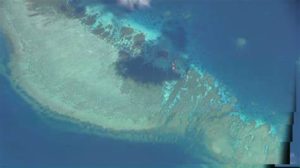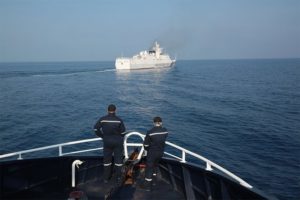HEADLINE-ASIA GEOPOLITICS | ‘Philippines must prepare for external threats’
Marcos wants troops in north ready amid China-Taiwan tension
…
Taiwan steps up security after ex-Chinese navy captain enters illegally by boat
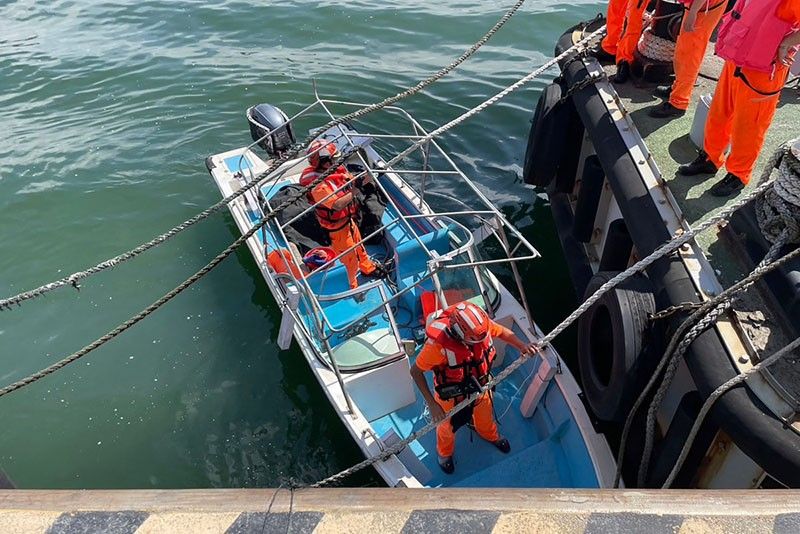

MANILA, Philippines — President Marcos has ordered Army units in Northern Luzon to be “well-prepared” amid rising tensions between China and Taiwan.
Speaking to members of the Philippine Army’s 5th Infantry Division at Camp Melchor dela Cruz in Gamu, Isabela on Monday, Marcos said the Philippines’ proximity to Taiwan puts it within China’s area of interest.
“As I’m sure you know, Kaohsiung is 40 minutes flight from Laoag, so Taiwan is very close, which immediately puts us in the area of interest of China, and that is why it is important that the northern part of the Philippines is well-prepared for any eventuality,” Marcos said.
…
China considers Taiwan a renegade province.
“The external threat now has become more pronounced, has become more worrisome. And that is why we have to prepare,” he said.
He told officers and men of the 5th ID that their mission has expanded to territorial defense and stressed the importance of continued modernization of the Armed Forces.
“So, that is the mission that you have before you. Now, you have two missions, whereas before it was only internal security,” he said.
“For our part, (we will) build up that capability to make sure that you have all that you need to be effective in the defense of the republic,” the President said.
While the Philippines is not taking territory, its leadership has to make full commitment to defend the country against foreign attacks, according to the President.
“We are not trying to take territory. We are not trying to redraw the lines of sovereign territory, the EEZ (exclusive economic zone), the baseline,” he said.
Citing the changing geopolitical landscape and emerging new threats, the government decided to include Cagayan as a site for the Enhanced Defense Cooperation Agreement (EDCA).
Signed in 2014, EDCA allows US access to Philippine bases for joint training, pre-positioning of equipment and building of facilities such as runways, fuel storage and military housing. Permanent basing is prohibited.
In his keynote speech at the recent Shangri-La Dialogue in Singapore, Marcos stressed that the country has “clear moral ascendancy” in asserting its sovereign rights and maritime claims, which are based on “solid legal footing.”
“The lines we draw on our waters are derived not from imagination, but from international law,” Marcos said, in a subtle dig at Beijing’s sweeping “10-dash line” claim over the South China Sea.
Chinese defense minister Dong Jun was among those present at the annual security summit.
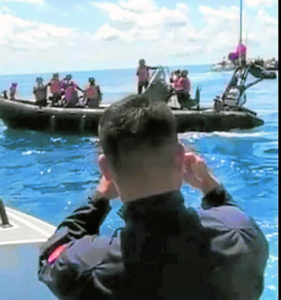
UN help sought
Aside from the prospect of Northern Luzon getting embroiled in a potential armed confrontation between China and Taiwan, the Philippines also has to deal with another source of tension at sea – Beijing’s possible enforcement beginning June 15 of a “maritime regulation” detaining for 60 days without trial foreign “trespassers” in its territorial waters.
China considers almost the entire South China Sea its territorial waters.
With barely 24 hours left before the “regulation” takes effect, ACT-CIS partylist Rep. Erwin Tulfo said he is urging the government to ask the United Nations General Assembly to call on China – in a resolution – to stop its “unlawful actions” in the West Philippine Sea.
The call, he said, is in accordance with the UN Convention on the Law of the Sea or UNCLOS and the 2016 ruling of the Permanent Court of Arbitration (PCA) that invalidated China’s expansive claims in the South China Sea.
Tulfo said the PCA’s landmark decision “conclusively invalidated the Chinese government’s expansive claims under the so-called ‘nine-dash line,’ declaring such to be incompatible with the provisions of the UNCLOS, thus upholding the Philippines’ sovereign rights over the exclusive economic zone and continental shelf” in the West Philippine Sea.
China has “steadfastly refused to acknowledge and comply with the arbitration award, persisting in its increasingly unlawful actions in the WPS” despite the ruling, Tulfo said.
“This year alone, aggressive maneuvers and water cannon attacks by Chinese vessels against the Philippine Coast Guard (PCG) and Filipino fisherfolk underscore China’s blatant disregard for international law and the legal maritime rights o the Philippines,” he added.
The resolution stated that China’s new regulation is “further exacerbating the already volatile situation and posting a direct challenge to well-settled international maritime laws and principles.”
“One of the diplomatic avenues available to the Philippines is to bring the issue before the UN,” the measure read.
It underscored that the UN “can significantly influence international norms and policies, providing a robust platform for the Philippines to assert its maritime rights and seek global support against unlawful actions by any state.”
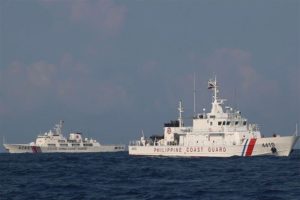
Protection
A senior administration lawmaker, for his part, said the Armed Forces of the Philippines should make good its promise to protect Filipino fishermen from getting detained by Chinese enforcing Beijing’s regulation against “trespassers.”
“We are taking the military at its word that our fishermen have nothing to worry about because the AFP has their back and will provide protection to them against possible harassment from the Chinese in the WPS,” Camarines Sur Rep. LRay Villafuerte said.
He said it would be best if the Philippine Navy, PCG and Bureau of Fisheries and Aquatic Resources can establish stronger presence in the WPS for the protection of fisherfolk.
Villafuerte also voiced support for the plan of the Department of Justice, in tandem with the Office of the Solicitor General, to sue Beijing for the environmental damage its island-building activities had inflicted on marine environment in the West Philippine Sea.
“The opening of another legal front to protest China’s incursions into Philippine waters is certainly most welcome as part of the Marcos administration’s commitment to exhaust all means to bring to global attention – and generate broad international condemnation of – the nonstop bullying tactics of China in waters that are legally part of our maritime territory, as declared under the 1994 UNCLOS and upheld by the 2016 arbitral ruling of the PCA in The Hague,” he said.
He also said Beijing’s unilaterally imposed fishing ban in the South China Sea “has neither legal nor scientific basis.”
He noted that even the International Tribunal for the Law of the Sea – a world court that resolves cases related to maritime disputes – has released an advisory opinion declaring that China has no right to claim any islands or rock features based on its nine-dash line – later expanded to 10-dash line.
Earlier, Defense Secretary Gilbert Teodoro Jr. said China was apparently downplaying its harassment of the Philippines to an “action-drama debate.”
“They are trying to bait us by straying from the main points and dragging us into an action-drama debate, where we focus on minor details which stray us from the main message,” Teodoro told the media at the recent celebration of the Swedish National Day and reception for Swedish Defense Minister Pål Jonson.
“Let’s stick to the message,” he said.
“China wants us to go to the small details to forget the main message. The main message is: the 10-dash-line is the provocation. And everything flows from that,” he said.
“They have no business being anywhere in the West Philippine Sea and other areas where we have jurisdiction,” Teodoro said. — — Sheila Crisostomo, Delon Porcalla, Michael Punongbayan
 Ads by:
Ads by:


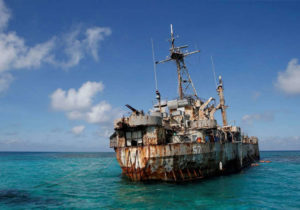
 Memento Maxima Digital Marketing
Memento Maxima Digital Marketing